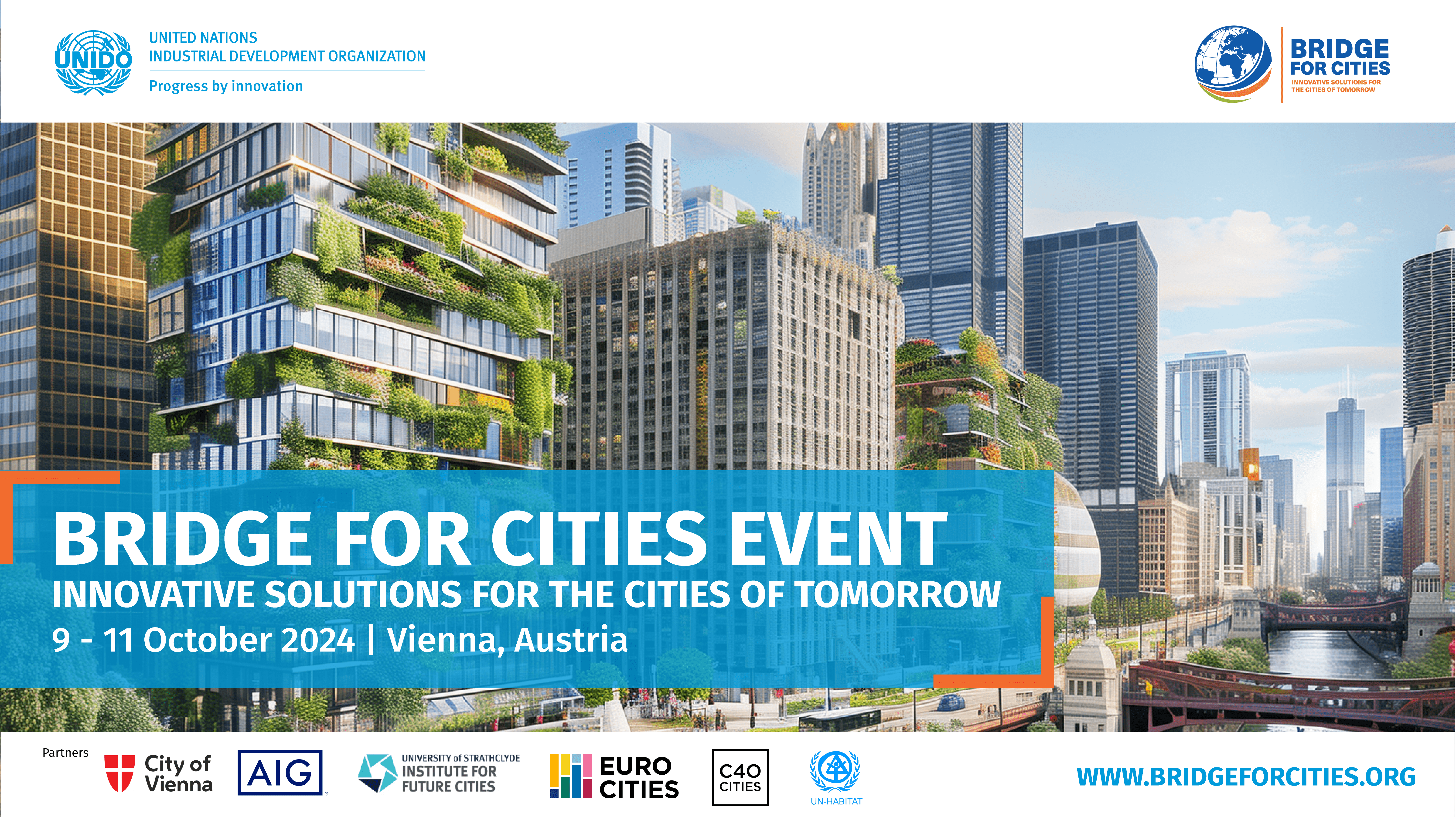9 Oct 2024, 08:30
11 Oct 2024, 16:30
Vienna International Centre, Austria
UNIDO

Background
The 2024 edition of UNIDO’s flagship ‘Bridge for Cities’ event is dedicated to exploring the profound impact of urbanization on global development and fostering innovative solutions for sustainable urban futures. By 2050, it is estimated that over two-thirds of the world’s population will reside in urban areas, representing a monumental shift in human habitation patterns. This urbanization trend not only necessitates the expansion and transformation of existing cities but also entails the construction of numerous new cities to accommodate the burgeoning population.
Amidst this urbanization wave, both challenges and opportunities abound. Existing cities grapple with issues such as overburdened infrastructure, traffic congestion, pollution, housing shortages, and social inequality. However, they also serve as hubs of innovation, culture, and economic activity, offering immense opportunities for social advancement, technological innovation, and sustainable development.
Simultaneously, the construction of new cities presents a blank canvas for innovative urban planning and design. These future cities have the potential to prioritize sustainability, resilience, inclusivity, and technological integration from their inception, paving the way for more livable and equitable urban environments.
The event will address a wide range of challenges and solutions associated with urbanization, focusing on cities along the Belt and Road and beyond. Moreover, the event will emphasize the importance of collaboration and knowledge sharing among diverse stakeholders, including government authorities, international agencies, private sector, academia, and civil society organizations. By leveraging innovation and expertise, participants will explore actionable strategies to address urban challenges while maximizing the opportunities presented by the urbanization wave.
At the core of the event lies the vibrant relationship between industry and cities. Industries concentrated in urban areas drive economic growth, job creation, and infrastructure development. However, this symbiosis has also led to environmental challenges, notably carbon emissions. By fostering collaboration and innovation, we can transform this relationship into a force for sustainability, mitigating emissions and creating greener, more resilient cities.
Focus
Urban centers contribute over 80% of global GDP but are also responsible for 70% of global greenhouse gas emissions. Sustainable urban-industrial development is essential for mitigating these impacts, promoting economic growth, and achieving global sustainability goals. This event will therefore focus on the following areas:
- Low-Carbon Solutions: Urban planning, renewable energy, and sustainable infrastructure.
- Transportation Systems: Sustainable modes like public transit, cycling, and walking.
- Poverty Reduction: Industrialization’s role in creating jobs and fostering innovation.
- Water Management and Waste Disposal: Strategies for efficient resource use and pollution reduction.
- Governance and AI: Enhancing urban governance and service delivery through AI technologies.
Through engaging activities and thought-provoking sessions, participants will delve into urban sustainability and the future of urbanization, fostering inclusive, resilient, and sustainable urban environments.
More information on the event can be found here.